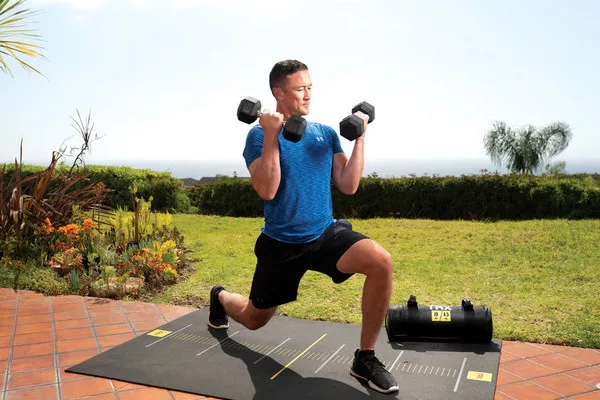Strength training is a cornerstone of fitness, offering a multitude of health benefits, from muscle growth and improved metabolism to increased bone density. However, when it comes to the duration of strength training sessions, questions often arise. Is 60 minutes of strength training too long? Should you spend that much time lifting weights? In this comprehensive guide, we’ll address these questions, debunk myths, and explore the ideal duration for strength training sessions.
SEE ALSO: How Much Strength Training is Optimal for Fat Loss? A Full Guide
1. The Benefits of Strength Training
Strength training, also known as resistance training or weightlifting, provides a range of physical and mental benefits:
Muscle Development: It promotes the growth and toning of muscles, enhancing overall strength.
Metabolism Boost: Muscle tissue burns more calories at rest, which can aid in weight management.
Bone Health: Strength training increases bone density, reducing the risk of osteoporosis.
Functional Fitness: It improves everyday activities by enhancing stamina and flexibility.
Mental Well-being: Strength training releases endorphins, reducing stress and enhancing mood.
2. Duration of Strength Training
The ideal duration for a strength training session can vary based on several factors, including individual goals, experience level, and workout intensity. Here’s a breakdown of different strength training durations:
Short Workouts (Under 30 Minutes): Short, high-intensity workouts, like circuit training, can be effective for those with time constraints. They focus on compound exercises and provide a quick metabolic boost.
Moderate Workouts (30-45 Minutes): Many fitness enthusiasts find that 30 to 45 minutes is an optimal duration for a balanced strength training session. It allows for a comprehensive workout targeting different muscle groups.
Extended Workouts (60+ Minutes): Longer workouts, such as those exceeding 60 minutes, are often necessary for advanced bodybuilders, powerlifters, or athletes with specific goals. These sessions include more exercises and rest intervals.
SEE ALSO: How Many Minutes of Strength Training Per Day? A Full Guide
3. Factors to Consider for 60 Minutes’ Strength Training
Whether 60 minutes of strength training is too long depends on various factors:
Fitness Level: Beginners may find shorter workouts effective, while advanced individuals might require longer sessions to challenge themselves adequately.
Goals: Your fitness goals play a significant role. For general fitness and health maintenance, shorter workouts can suffice. For muscle hypertrophy or sports performance, longer sessions may be necessary.
Intensity: Higher workout intensity can compensate for shorter durations. Focusing on compound exercises and minimizing rest periods can maximize results in shorter workouts.
Recovery: Longer sessions can lead to fatigue and overtraining if not balanced with adequate rest and recovery. Listen to your body and prioritize recovery days.
Schedule: Consider your daily schedule and commitments. Sometimes, shorter workouts are more manageable and sustainable.
4. Myths and Misconceptions on 60 Minutes’ Strength Training
To address the question of whether 60 minutes of strength training is too long, let’s debunk some common myths:
Myth 1: Longer Is Always Better
While it’s true that longer workouts can be beneficial for certain goals, such as bodybuilding or elite athletic performance, they are not always superior. The effectiveness of a strength training session is determined by factors like intensity, exercise selection, and technique rather than just duration.
Myth 2: Short Workouts Are Ineffective
Shorter workouts, when properly structured, can be highly effective. High-intensity interval training (HIIT) and circuit workouts, often lasting under 30 minutes, can provide substantial benefits in terms of muscle development, fat loss, and cardiovascular fitness.
Myth 3: Overtraining Is Inevitable
Overtraining is not solely determined by the duration of your workouts. It results from a combination of factors, including excessive training volume, inadequate recovery, and poor nutrition. Properly structured, longer workouts can be sustainable if they are followed by adequate rest and recovery.
Myth 4: Longer Workouts Always Lead to Better Results
Results in strength training are influenced by the quality of your workout, not just its duration. An hour spent on focused, compound exercises with proper form and adequate intensity can yield excellent results. Conversely, a longer session with ineffective exercises or poor form may not be as productive.
Myth 5: Extended Workouts Are Necessary for Muscle Growth
While longer workouts may be essential for advanced bodybuilders aiming for hypertrophy (muscle growth), beginners and those with general fitness goals can achieve substantial muscle development with shorter, well-structured workouts. Progressive overload, nutrition, and consistency play pivotal roles in muscle growth.
Myth 6: Shorter Workouts Lack Variety
Shorter workouts don’t necessarily mean limited exercise variety. You can incorporate a wide range of exercises that target different muscle groups within a shorter timeframe. Effective programming and exercise selection can provide both variety and effectiveness.
Myth 7: Longer Workouts Lead to Overuse Injuries
The risk of overuse injuries is not solely tied to the duration of a workout but more to exercise technique, load, and repetitive movements. Proper form and exercise variety can mitigate the risk of overuse injuries during extended sessions.
Myth 8: Short Workouts Don’t Build Strength
Shorter workouts can indeed build strength. High-intensity, shorter workouts that focus on compound exercises (like squats, deadlifts, and bench presses) can lead to strength gains by challenging muscles effectively.
Myth 9: Longer Workouts Equal More Calories Burned
While longer workouts may burn more calories during the session, they don’t necessarily lead to significantly more fat loss. Effective nutrition and consistency in both shorter and longer workouts are key factors in weight management.
5. Designing an Effective Strength Training Session:
To make the most of your strength training session, consider these principles:
Warm-Up: Spend 5-10 minutes warming up with dynamic stretches or light cardio to prepare your muscles.
Exercise Selection: Choose compound exercises that work multiple muscle groups, such as squats, deadlifts, bench presses, and rows.
Intensity: Focus on progressive overload by increasing weights or resistance gradually.
Rest Periods: Keep rest periods appropriate for your goals. Shorter rest intervals increase intensity, while longer rests allow for recovery.
Form and Technique: Prioritize proper form and technique to reduce the risk of injury.
Cool-Down: Spend a few minutes cooling down with static stretches to improve flexibility and reduce muscle soreness.
SEE ALSO: How to Program for Strength Training? This Is a Comprehensive Guide
FAQs about 60 Minutes’ Strength Training
1. Is 60 minutes of strength training too long for beginners?
For beginners, shorter workouts (around 30-45 minutes) are often sufficient to build a solid foundation. It’s important to prioritize proper form and gradually increase intensity.
2. Can I split my strength training into shorter sessions throughout the day?
Yes, splitting your strength training into multiple shorter sessions can be effective. Just ensure that each session targets different muscle groups and allows for adequate rest between.
3. How many days a week should I do strength training?
Aim for at least 2-3 days of strength training per week to see improvements in muscle strength and endurance. More advanced individuals may train 4-6 days a week, with varying muscle groups.
4. Is it better to do full-body workouts or target specific muscle groups in each session?
Both approaches have benefits. Full-body workouts are time-efficient, while split routines allow for more focus on individual muscle groups. Choose the one that aligns with your goals and schedule.
5. Can I do strength training every day?
It’s generally not recommended to do intense strength training every day. Muscles need time to recover and grow. Include rest days between sessions or alternate muscle groups.
SEE ALSO: Is It Okay to Do Strength Training Every Day? Benefits & Risks
6. How long should I rest between sets during strength training?
Rest periods depend on your goals. For muscle building and strength, rest for 1-3 minutes between sets. Shorter rests (30-60 seconds) increase intensity and can aid in fat loss.
7. Is cardio necessary in addition to strength training?
Cardiovascular exercise offers distinct health benefits, such as improved heart health and calorie burning. Combining strength training and cardio in your fitness routine provides a well-rounded approach to overall fitness.
8. Can I lose weight with strength training alone?
Strength training can help you lose weight by increasing muscle mass, which boosts metabolism. However, a balanced approach, including a healthy diet and cardio exercise, is often more effective for weight loss.
9. What’s the difference between strength training and weightlifting?
Strength training is a broader term that encompasses various resistance-based exercises, including weightlifting. Weightlifting specifically refers to Olympic weightlifting with lifts like the snatch and clean and jerk.
10. How can I prevent overtraining during extended strength training sessions?
Overtraining can be prevented by allowing adequate rest between sessions, maintaining a balanced diet, staying hydrated, and listening to your body. Incorporate rest days into your routine, especially after intense workouts.
[inline_related_posts title=”SEE ALSO” title_align=”left” style=”list” number=”3″ align=”none” ids=”1570,931,513″ by=”categories” orderby=”rand” order=”DESC” hide_thumb=”no” thumb_right=”no” views=”no” date=”yes” grid_columns=”1″ post_type=”” tax=””]
Conclusion
Is 60 minutes of strength training too long? It depends on your individual goals, fitness level, and the quality of your workout. Longer sessions can be effective for specific objectives, but they are not a universal requirement for strength training success. Shorter, more focused workouts can yield excellent results when designed intelligently and matched to your goals and schedule. The key is to prioritize consistency, proper technique, and a balanced approach to your strength training routine, regardless of its duration.
[inline_related_posts title=”Related Topics” title_align=”left” style=”list” number=”3″ align=”none” ids=”2129,2096,2021″ by=”categories” orderby=”rand” order=”DESC” hide_thumb=”no” thumb_right=”no” views=”no” date=”yes” grid_columns=”1″ post_type=”” tax=””]


































